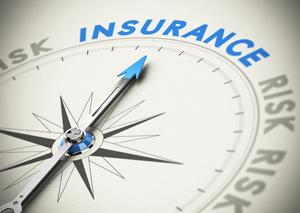September is National Preparedness Month.
There are steps you can take to safeguard your company and secure your physical assets.
Review Insurance Coverage: Inadequate insurance coverage can lead to major financial loss if your business is damaged, destroyed or simply interrupted for a period of time. Insurance policies vary, so check with your agent or provider about things such as physical losses, flood coverage and business interruption. Understand what your policy covers and what it does not. Ask about any deductibles, if applicable. Consider how you will pay creditors and employees. You should also plan how you will provide for your own income. Finally, find out what records your insurance provider will want to see after an emergency and store them in a safe place.
Prepare for Utility Disruptions: Businesses are often dependent on electricity, gas, telecommunications, sewer and other utilities. Plan ahead for extended disruptions during and after a disaster. Carefully examine which utilities are vital to your business’s day-to-day operation. Speak with service providers about potential alternatives and identify back-up options such as portable generators to power the vital aspects of your business in an emergency.
Secure Facilities, Buildings and Plants: While there is no way to predict what will happen or what your business’s circumstances will be, there are things you can do in advance to help protect your physical assets. Install fire extinguishers, smoke alarms and detectors in appropriate places. Consider the ways in which people, products, supplies and other things get into and leave your building or facility. Secure ingress and egress. The nation’s battle against terrorism takes place on many fronts, including the mailrooms of U.S. companies. Plan for mail safety.
Identify what production machinery, computers, custom parts or other essential equipment is needed to keep the business open. Plan how to replace or repair vital equipment if it is damaged or destroyed. Identify more than one supplier who can replace or repair your equipment. Store extra supplies, materials and equipment for use in an emergency. Finally, plan what you will do if your building,plant or store is not usable.
Secure Your Equipment: The force of some disasters can damage or destroy important equipment. Conduct a room-by-room walk through to determine what needs to be secured. Attach equipment and cabinets to walls or other stable equipment. Elevate equipment off the floor to avoid electrical hazards in the event of flooding.
Assess Building Air Protection: In some emergencies microscopic particles may be released into the air. For example, earthquakes often can release dust and debris, a biological attack may release germs, and a dirty bomb can spread radioactive particles. Many of these things can only hurt you if they get into your body. A building can provide a barrier between contaminated air outside and people inside, but there are ways to improve building air protection.
Building owners or managers, and employers should take a close look at the site’s Heating, Ventilating and Air-Conditioning (HVAC) system and be sure it is working properly and is well maintained. Be sure any security measures do not adversely impact air quality or fire safety. Start by developing and practicing shut down procedures. Then, make sure outdoor air intakes are secure. HVAC systems can be an entry point and a means of distributing biological, chemical and radiological threats. Air intakes at or below ground level are most vulnerable because they can be easily accessed. Consider relocating or extending an exposed air intake, but do not permanently seal it.
Finally, determine if you can feasibly upgrade the building’s filtration system. Increasing filter efficiency is one of the few things that can be done in advance to consistently protect people inside a building from biological and some other airborne threats. Carefully consider the highest filtration efficiency that will work with a building’s HVAC system.
Improve Cyber Security: Protecting your data and information technology systems may require specialized expertise. Depending on the particular industry and the size and scope of the business, cyber security can be very complicated. However, even the smallest business can be better prepared. Use anti-virus software and keep it up-to-date. Don’t open email from unknown sources. Use hard-to-guess passwords. Protect your computer from Internet intruders by using firewalls. Back up your computer data. Regularly download security protection updates known as patches. Make sure your co-workers know what to do if your computer system becomes infected. Subscribe to the Department of Homeland Security National Cyber Alert System, www.us-cert.gov, to receive free, timely alerts on new threats and learn how to better protect your area of cyberspace.
An investment in planning today will not only help protect your business investment and your livelihood, but will also support your employees, customers and stakeholders, the community, the local economy and even the country. Get ready now.
Ready Business was developed in consultation with the following organizations: The 9/11 Public Discourse Project, ASIS International, Business Executives for National Security, The Business Roundtable, International Safety Equipment Association, International Security Management Association, National Association of Manufacturers, National Federation of Independent Businesses, Occupational Safety and Health Administration, Small Business Administration, Society of Human Resource Managers, and U.S. Chamber of Commerce.
This commonsense framework is designed to launch a process of learning about business preparedness. For more information go to www.ready.gov.
Posted at 11:48 AM
Emergency Preparedness



